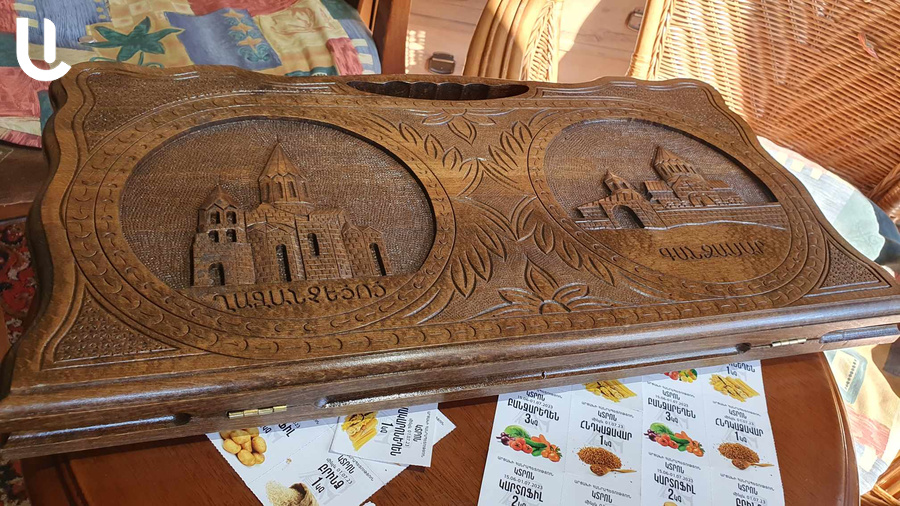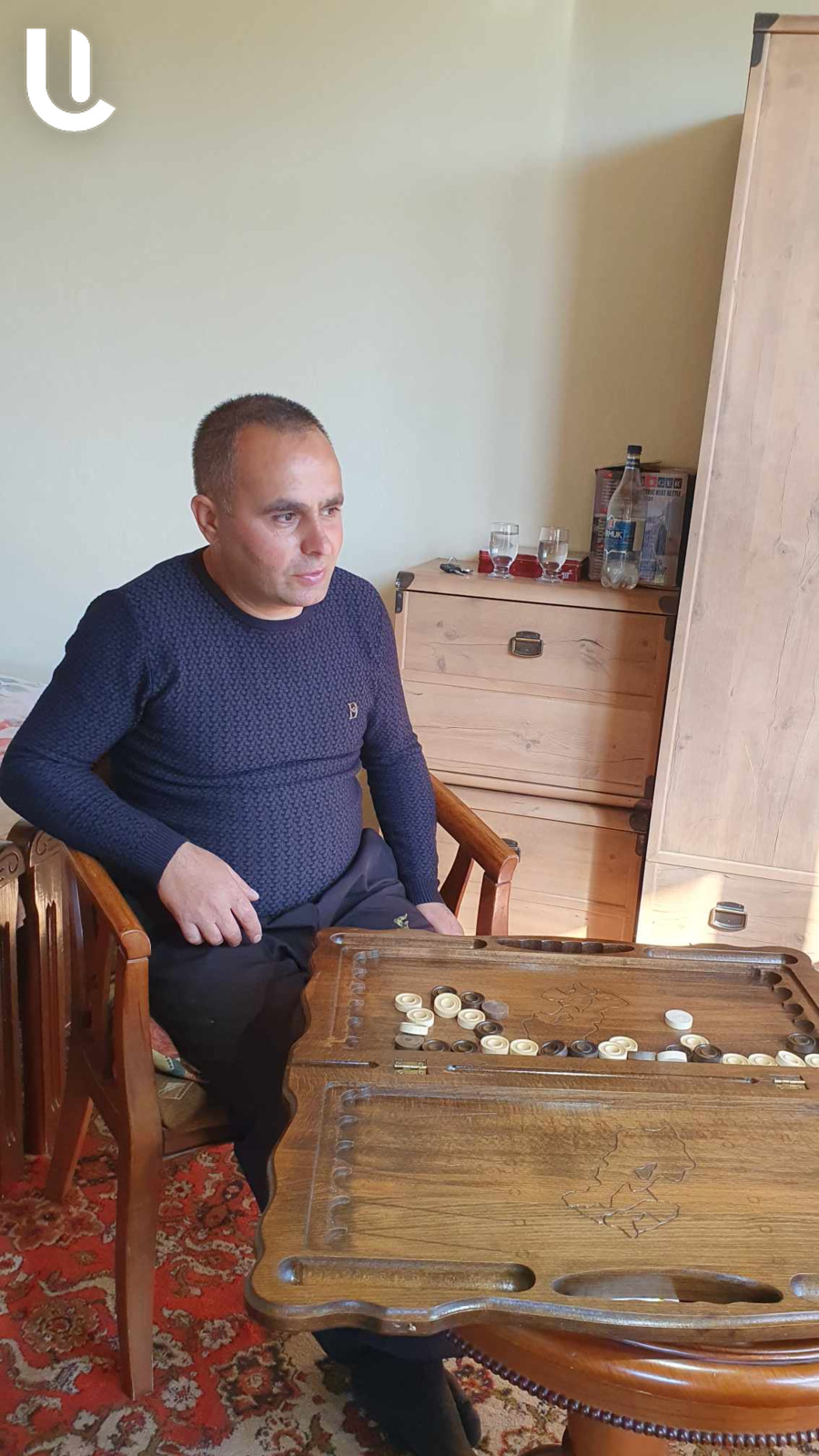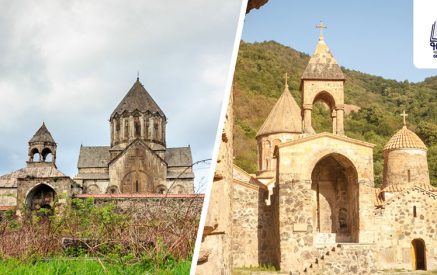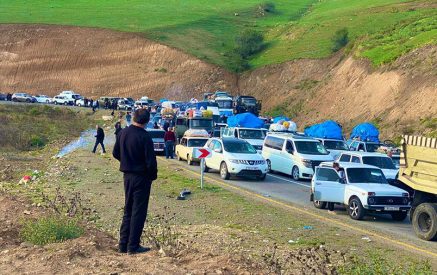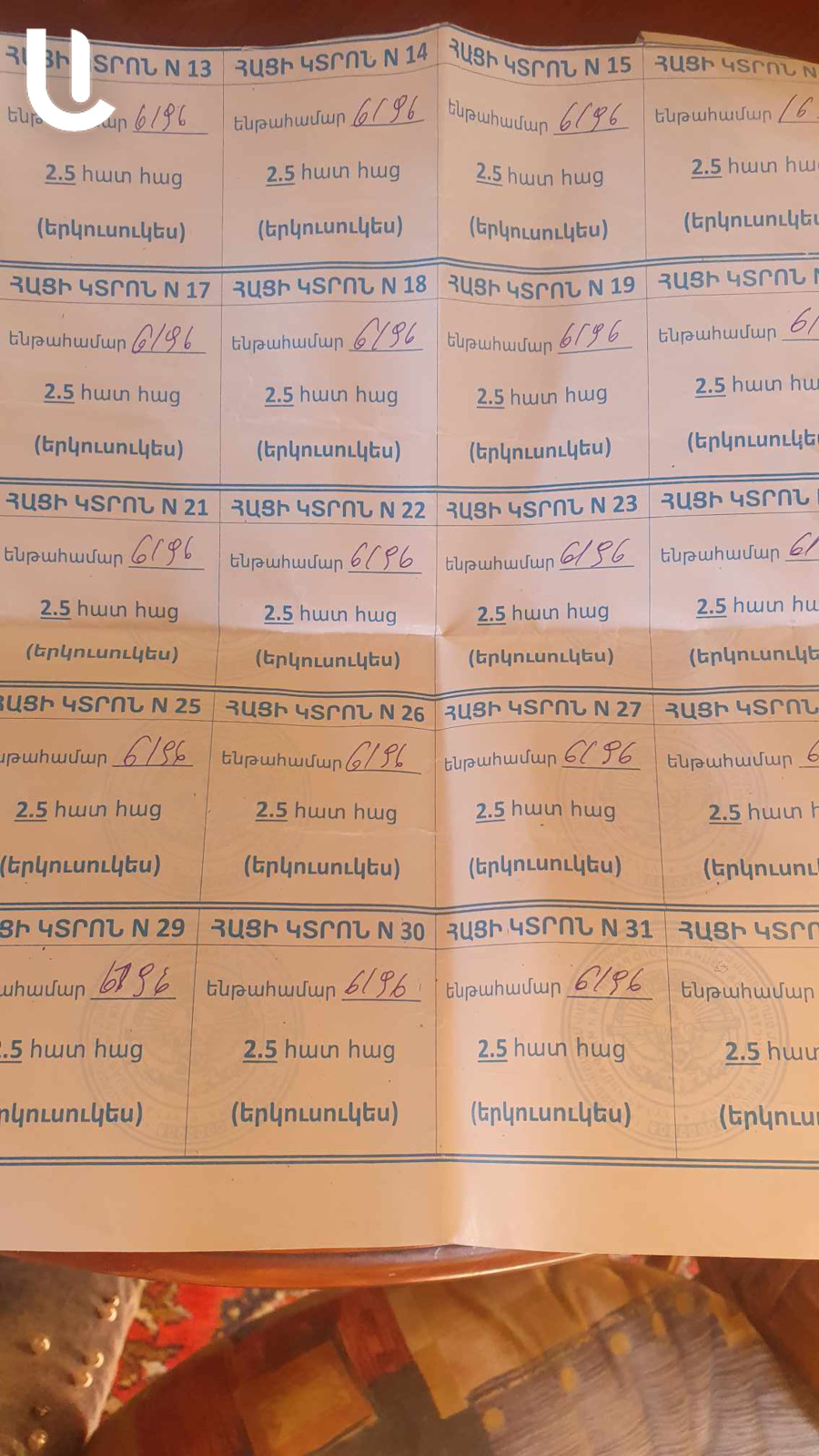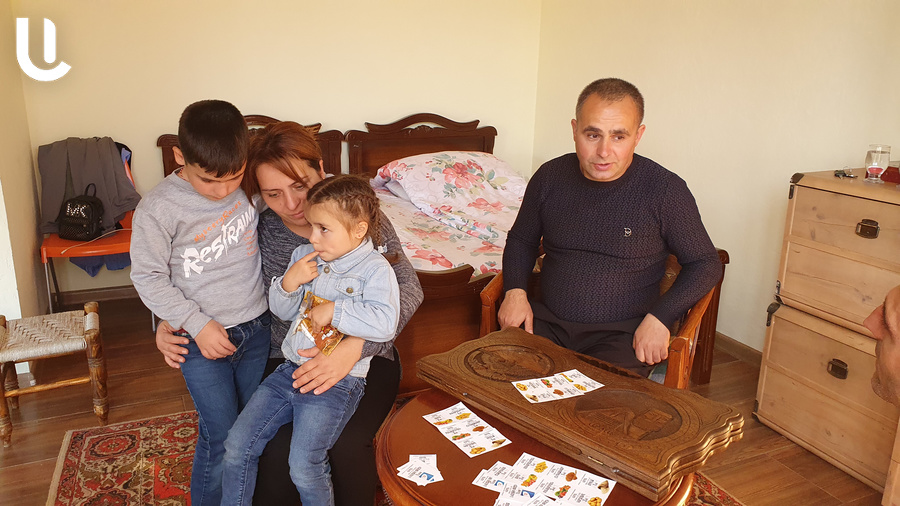43-year-old Ashot Lazaryan, born in Vank village of Martakert district of Artsakh, or as it is better known in Gandzasar, with his wife and three minor children settled temporarily in the “Aghajanyan” camp of Toros village of Ashotsk extended community of Shirak Region, left Artsakh, took with him the most expensive gift – wooden backgammon, on one side of which are Gandzasar and Ghazanchetsots Church, on the other – the coat of arms of Artsakh and the “Dedo-babo” monument.
When opening backgammon, the map of Artsakh opens. Ashot Lazaryan left his dearest people in Artsakh, his martyred friends, and it is also hard not to see the monastery complex of Gandzasar. He says he built their house with his hands but will not regret it if it collapses. It is possible to build a new one, but the most challenging thing is the loss of loved ones.
His wife, Lusine Lazaryan, sitting quietly and thoughtfully listening to our conversation, suddenly intervenes, saying that the house doors were not closed when leaving; she keeps the key with her. On the table are coupons for bread, sugar, and other products that evoke bitter memories. The woman stood in line every day, all night, from 1:00 a.m. to 7:00 a.m., to get two black loaves of bread, which were not fit for eating, and other products were obtained with great difficulty or not at all.
Read also
Once, Ashot Lazaryan tried to buy 20 liters of gasoline for 140 thousand drams so that he could go by car to buy flour, but the money was returned, and someone else had already bought it for 150 thousand drams.
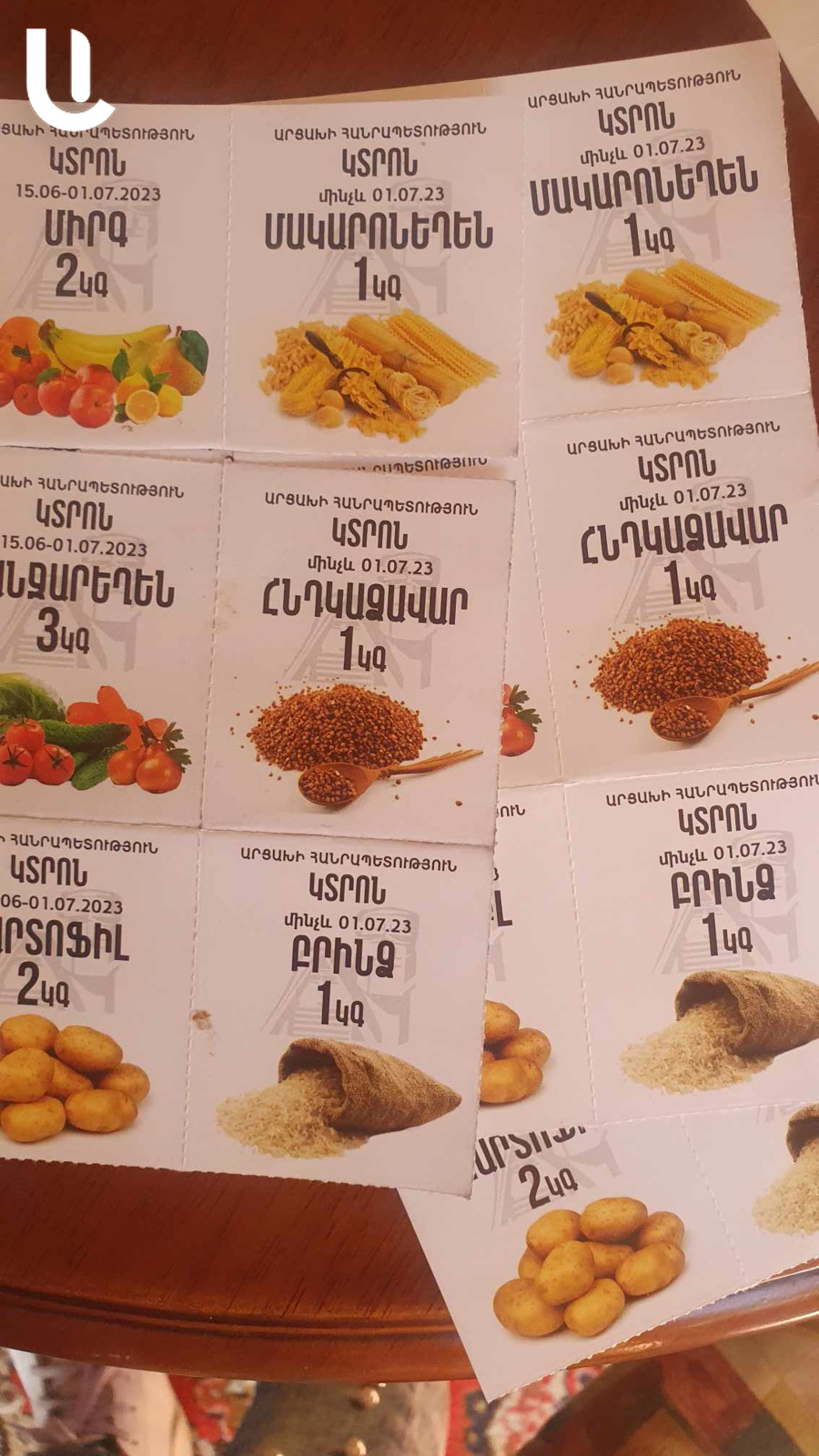
They remember that there were cases of murder during the queues. During the line, a woman was beaten, her “gallbladder ruptured,” and she died; a man was also stabbed for a pack of cigarettes and died. According to our interlocutor, the black bread and unfit for eating was tolerable; not being protected was unbearable.
According to Ashot Lazaryan, Vank is one of the villages that suffered the most victims during the attack. Out of 1540 inhabitants, about 20 were injured, 11 were killed, and there are still missing and wounded.
Ashot Lazaryan was a contract soldier; recently, he worked in a military unit as a driver. They were ready to shoot at the troops but did not give the order. However, there were gun battles in the middle of the road. The enemy appeared both from the front and behind. They never thought that Artsakh would be entirely depopulated.
Our interlocutor cannot imagine living under the control of Azerbaijan. “What will happen, they with weapons and we without weapons, if we go and live there, they are the leaders, I will take my family, we will live unprotected, how will we stay… We will stay, but naturally, not in their composition.
They said: drop your weapon, I threw it in the car, and they were armed, sitting, laughing at us. How detached do you have to be to go to your armed enemy, let them say something, and you won’t be able to answer? We exist physically, but we are all spiritually dead; we left everything behind, left empty-handed, and they sent us away laughing. You can’t laugh at them, but they were laughing at us,” says our interlocutor.
Nune AREVSHATYAN




















































